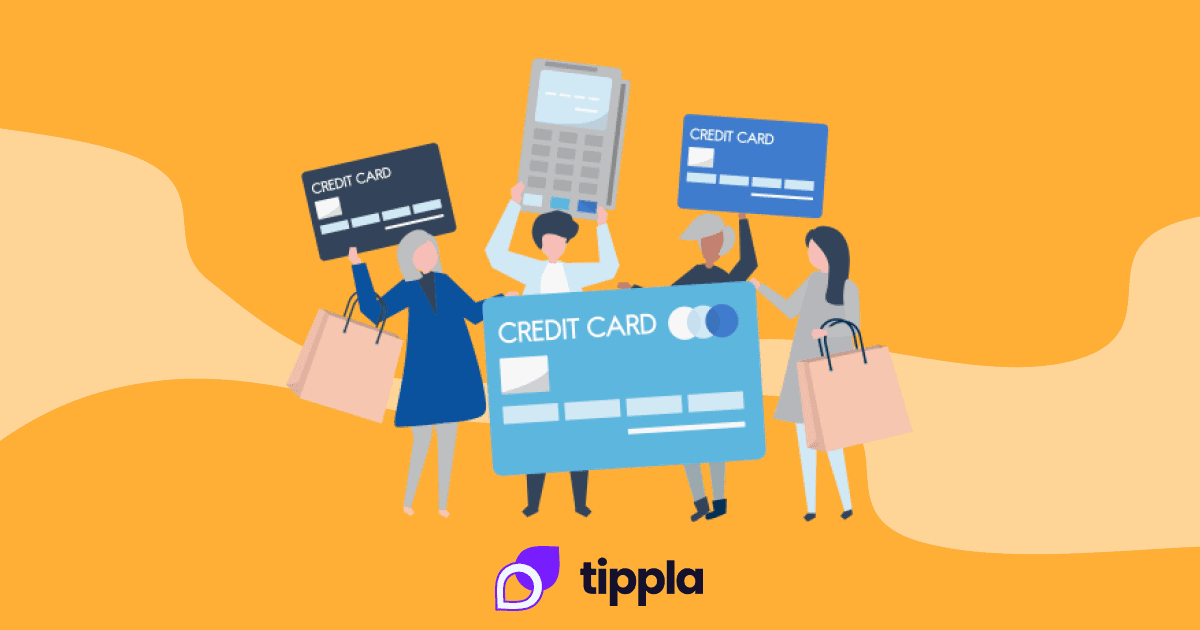Published in July 26, 2021
What Do Lenders See When They Look At My Credit Report?

If you’re wondering what lenders see when they look at your credit report after applying for a loan, then Tippla has the perfect guide for you!
Credit Score 101: What do lenders see?
If you are thinking about getting a loan, you may wonder what do lenders see when looking at your application. Not matter if you apply for a credit card or a personal loan, your lender will have a look at your credit report at some point during your application. Why? Because lenders want to know how likely it is for you to make your repayments. But what do lenders see exactly? Let’s have a look.
What is a credit report?
Your credit report contains all information related to your previous credit history. In short: Every time you have signed up for a credit account in the past, this account went straight into your credit report, including if you have been paying your credit card on time and how much of the credit you have been using.
When it comes to your credit score and what do lenders see, while this information is interesting for potential creditors, they mostly look at your credit score, a number that indicates your creditworthiness and the likelihood that you will repay credit debt in the future.
Your credit score is a number based on your previous credit history. Credit bureaus will predict the likelihood of making your payments on time judging from previous financial behaviour. Australia’s biggest credit bureaus are illion, Equifax and Experian. Different credit bureaus have slightly different scoring systems, so depending on what report you look at, your numbers may vary.
What is on my credit report?
A credit report is issued by credit bureaus, Equifax, illion, and Experian. They collect information about your consumer financial behaviour from anyone you may have a credit account with (plus any company that you didn’t pay in the past). If you look at your credit report, the sheer amount of information may be a little overwhelming. After all, credit reports are not made for consumers to use. That’s why we built Tippla – to break it down for you.
Your credit report consists of different segments and contains different pieces of information about you and your previous financial history. This includes:
Personal information
Your credit report will contain personal information such as your name, your address, and date of birth. It may also include details about your employment. This information is important to match the right information to the right person.
Note that your credit report doesn’t include any information about your marital status, income, or your level of education.
A list of your credit cards
This includes information about your credit cards, your credit limits, and your payment history. Your credit report won’t include your purchase history. What matters to them is if you make your repayments in a timely manner and if you borrowed money you are able to afford the expense of the financial commitment.
Your loans
You may have a list of different loans that you are already repaying such as student loans, personal loans, car loans, or a mortgage. Your report may contain the loan amount and your repayment history.
How much money you owe
Your credit report will also show any personal debt – It will show the applied amount of credit but will not indicate updated balances of those debts unless you default on a financial product and it is listed for the debt at the time of the ‘default listing’, including public records such as bankruptcies, tax liens and civil judgment against you. It will also include if you pay your bills for rent or electricity on time or if late payments occurred.
Hard inquiries
Any hard inquiries will be listed on your credit report. This could be credit enquiries, rental applications, and credit checks. Soft applications won’t show up in your credit report to a potential lender but will be visible to you.
It is important to check your account frequently to make sure the recorded information is correct. If you happen to find inaccurate information, you can dispute it to get it fixed. To answer the question of what do lenders see when they look at your credit report, they can see all of the above information.
Who can inquire about your credit score?
Your credit report contains very personal information about your finances, so you may be worried about who can actually see it, and what can lenders see. In Australia, while there are a few people who can inquire about your credit history, you can relax. Credit bureaus will keep your information safe and only share it with institutions that have a right to see it. This means lenders and potential lenders can send inquiries if given permission. In most cases, you give your written consent to inquire after your credit report within the application. Your data is never simply available to the general public.
Your credit report can be accessed by:
- Banks when you open an account
- Creditors such as credit card companies or lenders
- Potential Landlords
- Utility companies
- Government agencies with a legitimate reason
- Student loan providers
- Insurance companies
- Any entity with a court order
You may have heard that inquiries may impact your credit report. That’s true but it depends on the type of inquiry. There are so-called soft inquires which include
- Inquiries made by you to check your credit score
- Reviews by existing lending accounts
- Requests by companies to send you promotional credit card offers
These inquiries will not show up to potential lenders but you can see them in your own credit report where they will be saved for up to 24 months.
Hard inquiries are requests to review your credit history made by potential lenders. They do affect your credit score and will show up in your credit report. However, if you are shopping around for the best deal on a mortgage or a personal loan, that’s not a problem. Multiple inquiries around the same topic within a given period (14 to 45 days, depending on your credit bureau) will be counted as one hard inquiry. This allows you to look for the best deal without impacting your score.
Do all creditors see the same report?
When you request to see your credit report, you may see different information from what a potential lender would see. For example, for security reasons, you can see who accessed your credit report and when – lenders can’t see this information.
So what do lenders see when they look at your report and do all creditors see the same report? Yes, they do. However, there is a difference between hard and soft inquiries. Soft inquiries don’t leave a mark on your credit report and rather get an overview to verify who you are while hard inquiries are visible on your credit report and if there are too many in a short period of time, will affect your credit score negatively. They also get to see the credit report in full detail.
Note that each credit bureau has a slightly different reporting style, therefore, their individual reports may differ.
How to access your credit report
Legally, each credit bureau has to give you the option to access your credit report once a year. However, it’s recommended that you look at your credit report more often than that to prevent fraud and to make sure you know where you’re at. You can directly request your yearly free credit score from each credit bureau, it may take around 10 days until you get it. No one has got time for that, right?
With Tippla, you get access to your credit report within minutes. Simply verify your personal data and see your numbers. You can re-access your records as often as you want. That’s especially useful when you are working on growing your credit score over time. Click here if you want to check your credit score right now.
What if I don’t have much credit history?
To assess your credit history, a credit bureau needs valid data. There are many reasons why you may not have much data yet. Maybe you just finished school and are spreading your wings into the world of finances. If you make informed decisions now, solid credit history isn’t far off. Most credit bureaus need at least 60 months of data to give you a credit score. Read more about how to build a good credit history in your teens.
If you have been in the workforce for a while but stayed away from anything credit, you may have a so-called ‘thin credit file’.
Don’t worry. You can build a credit history within a few months time. However, it might require a little time and effort.
What do lenders see when they check my credit report: an overview
To sum up the answer to the question “what do lenders see when they look at my credit report” – they will be able to see the following:
- Your personal information;
- Your credit and repayment history;
- And recent applications you’ve made.
How Tippla can help
Did they teach you finance in school? They absolutely should. Knowing how to build a solid credit file is important for your future self! As a Tippla member, you can go back to credit school. We teach you everything you need to know about building credit and how to improve your credit score. Keep a close eye on your file while taking the necessary steps into a strong financial future! Sign up to Tippla for no cost at all!
While we at Tippla will always do our best to provide you with the information you need to financially thrive, it’s important to note that we’re not debt counsellors, nor do we provide financial advice. Be sure to speak to your financial services professional before making any decisions.
Related articles

How Long Does Bankruptcy Stay On Credit Report?
29/07/2021
There are a number of reasons why someone might...

Understanding Superannuation in Australia
01/10/2024
Superannuation, commonly known as “super,” is a crucial element...

Credit Scores and Mortgage Applications: What Australians Need to Know
15/09/2023
Many Australians dream of owning their own home, but...

How to Apply for a Credit Card in Australia
07/09/2021
Are you looking for some extra finance for emergencies,...
Subscribe to our newsletter
Stay up to date with Tippla's financial blog